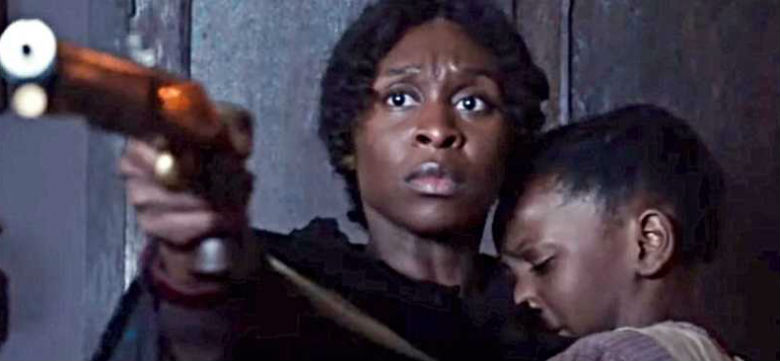15th Montreal International Black Film Festival kicks off with an exclusive screening of Harriet
Harriet, a poignant biopic of the life of Harriet Tubman, a runaway slave who helped hundreds of slaves to freedom, opened the 15th edition of the Montreal International Black Film Festival (MIBFF) at the Imperial Cinema on Sept. 24.
This festival presents groundbreaking cinema that moves us, raises awareness and takes us all by surprise. The MIBFF strives to present films that take on important issues in the world, that raises questions that are provocative, that make us smile, that leave us perplexed and, at times, that even shock us,” stated Fabienne Colas, its creator, at a recent press conference.
Hundreds of guests were welcomed on the red carpet by Colas at the glitzy opening night cocktail party. Guests included Montreal Mayor Valérie Plante, filmmakers Euzhan Palcy and Jean-Claude Lord, and Telefilm Canada’s newly-minted executive director, Christa Dickenson.
In her brief address, Plante emphasized the importance of the MIBFF, particularly for emerging filmmakers based in Montreal, whose talents would be overlooked because of limited access to mainstream venues to showcase their work.
Before the screening of Harriet, Colas awarded MIBFF Pioneer Awards to Palcy and Lord for their decades of work devoted to making trailblazing and impactful films that illuminated political and humanitarian issues, with inclusiveness at their core.
Palcy is a Caribbean-born filmmaker who has won both a César Award and a Silver Lion Award, and Lord is a Montreal-based legendary filmmaker. In their acceptance speeches, each provided insight into the trials they had encountered as they strove to create films that would enlighten and raise awareness.
In Harriet, Cynthia Erivo plays the leading role. The British actress is a Tony, a Grammy, and an Emmy Awards-winner, and now there’s buzz about an Oscar for her performance in Harriet.
As Tubman, Erivo delivered a demure, youthful, energetic and very spiritual slave who courageously fled Maryland to freedom while still in her 20s. It is evident that Tubman knows that her innate lack of fear shocks the men in her orbit, but she succeeds in using it as a tool to frustrate the authorities and slave-owners as she leads hundreds of slaves to freedom through the Underground Railroad network.
Kasi Lemmons, the director, successfully transformed what is an otherwise painful and dark chapter in the history of human suffering into a tale that is inspiring, illuminating and, at times, quite jarring. Scenes depicting the brutality that slaves were subjected to by their owners are included, but Lemmons’ approach is more positive in that the focus is on Tubman’s call to action and her seemingly natural ability to inspire others. A year after gaining her freedom, Tubman returns to Maryland for her husband and discovers that he has remarried, but she quickly convinces some of her relatives and friends to follow her north to freedom instead.
John Toll, a two-time Academy Award cinematographer, provided the stunning backdrop in which Harriet shines. Artfully, he captures the scenery and the foreboding landscape and uses it to portray its threat to survival and the sheer destitution it rendered. Terence Blanchard’s enraptured score enters the scenes, almost as another character and harmoniously and seamlessly moves the narrative along. When despair appears on the horizon, the gospel tracts serve to energize the action. This team delivers an impactful, memorable, yet entertaining tale that is neither preachy nor unnecessarily overworked.
Harriet is a perfect fit for the MIBFF’s mission in that this story is told through a black lens. Notably, at its establishment in 2005, the MIBFF was named the Haitian Film Festival that featured just three films. Along the way it was renamed and this year’s program featured over 90 films from 25 countries. As an additional bonus, Q&A sessions with the members of production crews followed many of the screenings.
“Our focus now is to go beyond awareness with concrete actions that will foster inclusion and diversity, both on and off the screen,” said Colas. As part of its quest to empower the next generation of black filmmakers, several workshops were held that were moderated by a array of directors, filmmakers, and actors. In addition, Colas announced the creation of Quebecor’s Diversity on Screen scholarship to foster diversity in front and behind the camera.
Harriet, this must-see film, had its world premiere at TIFF earlier this month and will open in theatres all across Canada on Nov. 1. For more information please consult montrealblackfilm.com
Feature photo source: MIBFF
